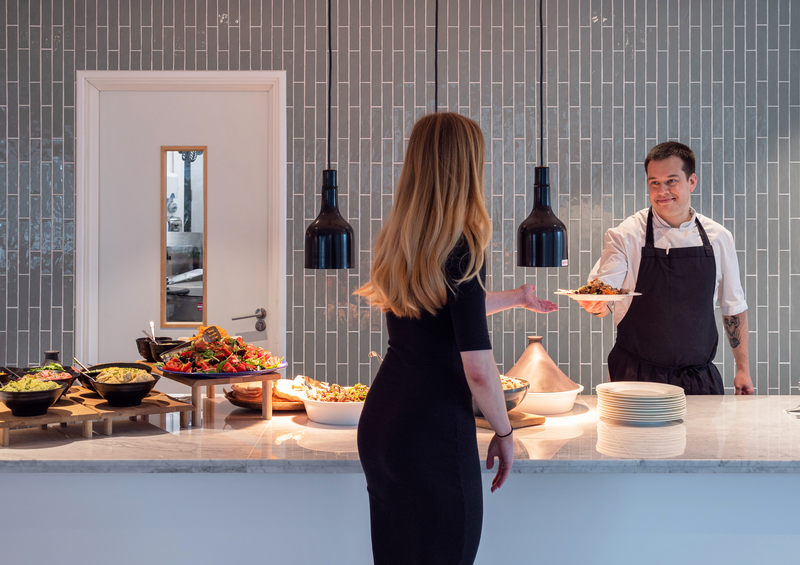UK Blog - Four Minute Read
Reigniting workplace culture through food

Building collaboration and culture, one meal at a time
At ISS, Dan Corlett and Hannah Hughes are responsible for bringing bespoke dining experiences to clients—and “earning the commute" of employees. They explain why good food is crucial to the post-pandemic workplace experience.
Fuelling “body, mind and soul”
Creating bespoke dining experiences
“
“Bringing the right food into the right environment is so important in helping clients get their employees back to the workplace.”